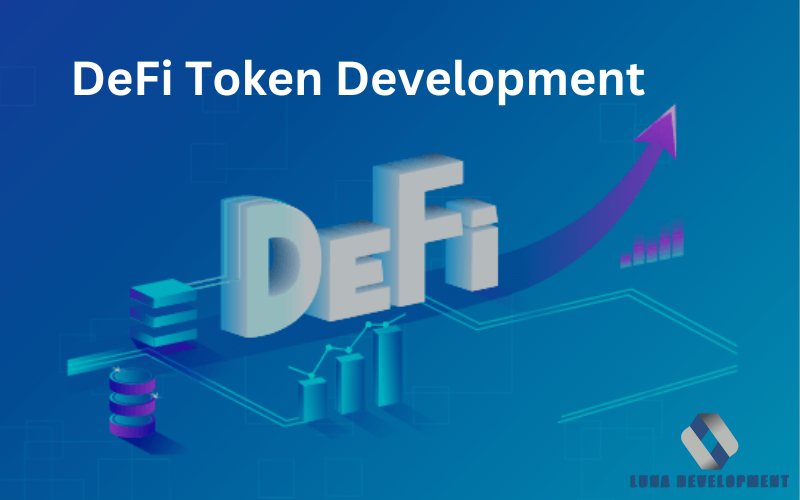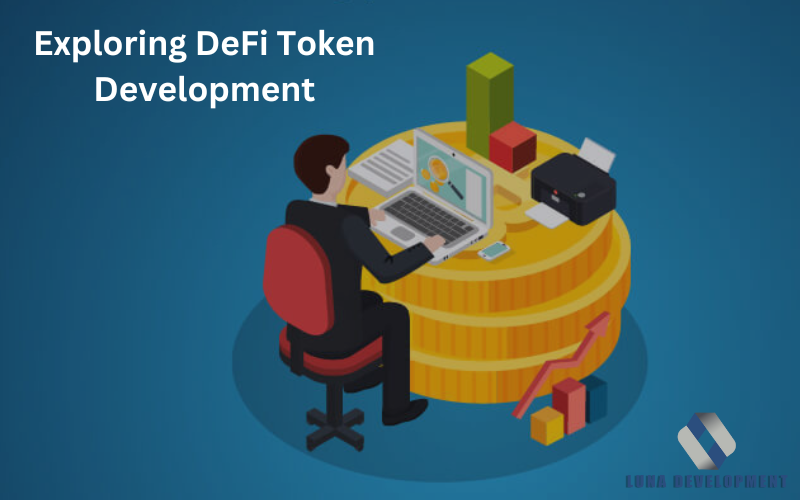Decentralized Finance (DeFi) has been making waves in the world of finance, revolutionizing how we handle money, investments, and transactions. At the heart of this innovative space are DeFi tokens, which play a crucial role in this financial revolution. Let’s dive into the exciting world of DeFi token development!
What Are DeFi Tokens?
Tokens in the Digital Realm: Imagine tokens as digital assets or currencies, but instead of physical coins or paper money, they exist on the internet.
DeFi Tokens: These are tokens specifically used within decentralized finance applications. They power the ecosystem, enabling various functionalities and services.
Understanding DeFi Token Development:
Purpose: DeFi tokens serve various purposes, such as governance, facilitating transactions, providing liquidity, or backing assets.
Building Blocks: Developers use programming languages like Solidity to create these tokens on blockchain networks such as Ethereum.
Smart Contracts: DeFi tokens often rely on smart contracts, self-executing contracts with predefined conditions written in code. These contracts automate processes without intermediaries.
Key Features of DeFi Tokens:
Interoperability: Many DeFi tokens can be exchanged or used across different decentralized applications (dApps) and platforms.
Liquidity Provision: Some tokens are designed to enhance liquidity pools, ensuring smooth transactions within the DeFi ecosystem.
Governance Rights: Holders of certain tokens might have the power to participate in decision-making processes within the associated protocols. As the ecosystem evolves, understanding the intricacies of DeFi token development becomes increasingly important for anyone interested in the future of finance.
Value Accrual: Tokens can accrue value through various mechanisms, like staking, yield farming, or their utility within specific applications.
The Token Development Process:
Conceptualization: Developers first identify the purpose and utility of the token within the DeFi ecosystem.
Token Standards: Tokens are often created following predefined standards like ERC-20 or ERC-721 (Ethereum Request for Comments).
Smart Contract Development: Writing and deploying smart contracts on the blockchain network, ensuring security and functionality.
Testing and Deployment: Rigorous testing is crucial to identify and fix any vulnerabilities before the token goes live.

Challenges in DeFi Token Development:
Security Concerns: Writing secure code is critical to prevent hacks and vulnerabilities in smart contracts.
Regulatory Compliance: Adhering to ever-evolving regulations poses challenges, especially in the decentralized landscape.
User Adoption: Convincing users to trust and adopt new DeFi tokens amidst the volatility and complexity of the market can be challenging.
Impact and Future of DeFi Tokens:
Financial Inclusion: DeFi tokens enable global access to financial services, benefiting those without traditional banking systems.
Innovation: Continuous advancements in DeFi token development drive innovation, paving the way for new financial products and services.
Potential Risks: While promising, the DeFi space still carries risks like market volatility, smart contract vulnerabilities, and regulatory uncertainties.
Conclusion:
DeFi token development is at the forefront of transforming traditional finance. These tokens unlock a world of possibilities, from democratizing financial services to fostering innovation.
Remember, while the world of DeFi tokens holds immense potential, it’s essential to navigate it with caution, learning continuously and embracing the evolving landscape of decentralized finance.
Visit Luna Development for more information:

